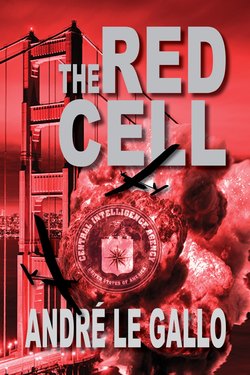Читать книгу The Red Cell - André Le Gallo - Страница 3
На сайте Литреса книга снята с продажи.
FOREWORD
ОглавлениеThe definition of an unsung hero is one you don’t know about. So you have not heard, in all probability, of this author. I have, because we shared a training course in 1963. It was no ordinary classroom yawn. It was the CIA training for future operations officers—rigorous, physically and mentally challenging, sometimes sleep deprived, and sometimes demanding the spontaneous invention of a scenario for an unfolding operation.
The canvas of a would-be operations officer starts with a foreign problem or even quagmire that demands insights—covertly acquired intelligence—in order to understand the true situation, or the true intentions of an antagonist.
The training scenarios attempted to prepare us to deal with people from very different cultures, on foreign lands that might be unwelcoming. We also understood we would often be alone in using our assessment skills with a foreigner whom we hoped could be convinced to be receptive to our needs.
A winning, compassionate personality would help. Not to mention “think on your feet” adjustments to surprising information, or hints that a person you wanted to trust was not quite what he wanted you to believe.
The thing I remember most from the first week of that training was the quality of the men and a few women who were my new colleagues. It wasn’t just that they had good educations, law or other advanced degrees, or living experience abroad. More than that, they were bright, quick-witted, admirable young Americans, all eager to serve their country. And the author of this book, André Le Gallo, was a standout.
André didn’t try to be a standout. Indeed, we understood from our training it was much better NOT to be noticed. Not to call attention to our covert activities. Not to be labeled by a foreign intelligence service as “probably a CIA officer”. Better to be, or seem to be “unsung.”
But André’s background was different than most of ours. And in time, I learned that his boyhood in Brittany, France included staying out of the way of and playing tricks on Nazi soldiers during World War II. He already knew a thing or two about real life deception and guile. But in training André was solid and sensible and dependable. You wanted him on your side.
Then we all went off into the Cold War to, in fact, serve our country. André journeyed to Laos to lead mountain tribes as his first challenge. I went in a different direction to serve. But we were in touch—not often—over the next thirty-five years of adventure and innumerable scenarios. André became very, very good as an intelligence officer. You will have to take my word for that. But near the end of those many years, I was in a position to see some of the outstanding bits of one of his fine operations. It comes as no surprise to see another scenario, this time his third novel, from my old comrade.
I’m not going to tell you anything about his story:
EXCEPT that it, like a James Bond adventure, will keep you on the edge of your chair.
EXCEPT that when he tells you a detail of a place in Brussels or Bucharest or Tehran, it is because he still remembers it vividly from his travels there.
And EXCEPT when he describes the nasty symptoms one of his characters has suffered from the disease known as ALS, it reflects his courage in personally facing that condition.
Enjoy your read, and know you are in the hands of a distinguished, unsung American.
—Thomas Twetten, Former Deputy Director Operations, Central Intelligence Agency
Iran has been at war with the United States since the 1979 Ayatollah Revolution, when it held American diplomats hostage for 444 days. The Red Cell attempts to provide a fictional but realistic glimpse into the covert war that never reaches the general public’s awareness.
